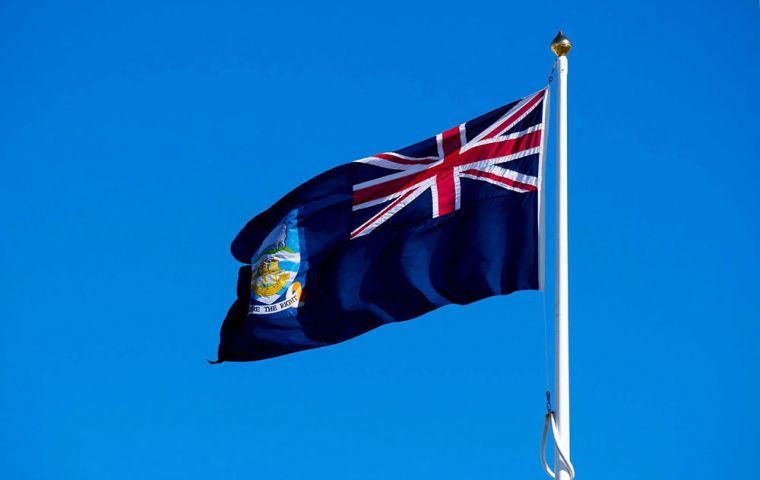MercoPress. South Atlantic News Agency
Falklands plans to borrow US$ 85 million for the port, and manages a credit rating of A+ from S&P Global
 Its new A+ rating puts the Falklands, which has a population of just 2,563 according to the government's website, in line with China and Japan.
Its new A+ rating puts the Falklands, which has a population of just 2,563 according to the government's website, in line with China and Japan. Reuters has reported that the Falkland Islands got its first sovereign credit rating, an investment-grade A+ score from S&P Global on Monday, as the tiny British-run territory looks to dip into borrowing markets to pay for improvements to its main port.
Prior to 2020, the Falklands had virtually no sovereign debt, but its plans to upgrade the port in the capital Stanley mean it is expected to borrow roughly 60 million Falkland Island pounds (US$ 85 million) this year.
The Falkland Islands Government (FIG) issued an statement claiming that “the A+ investment grade credit rating means that the government has demonstrated a strong capacity to meet its financial commitments,” including a prediction to the future, which is “supported by prudent financial decision-making.”
FIG's Financial Secretary, Tim Waggott, said: “It has been a team effort to secure this strong rating for the Falkland Islands, particularly given the impact of the pandemic. I would like to thank everyone who helped contribute to this positive outcome. We have been able to demonstrate to an internationally renowned ratings agency that our track record of prudent fiscal policies and economic stability means that not only does our balance sheet look healthy, but so does our potential for future prosperity.”
The planned borrowing for the port will leave the islands' debt-to-GDP ratio – the standard metric of fiscal health – at roughly 21%, S&P estimated.
Its new A+ rating puts the Falklands, which has a population of just 2,563 according to the government's website, in line with China and Japan.
Fishing accounts for around half of the Falklands US$300 million GDP, which along with oil and gas exploration, helped propel economic growth by 11% a year on average between 2009-2018.
The economy ground to a halt last year when COVID-19 hit sectors such as tourism. The departure of the United Kingdom from the European Union has also presented a challenge because it has led to tariffs on the territory's fish exports.
In contrast with several other small overseas territories, the Falkland Islands does not receive any direct budgetary assistance from the UK.
However, Portfolio Lead for Government Services, MLA Roger Spink, added that the “rating reflects a great deal of work done over a considerable period of time and supports a wider framework for longer term investment, such as our ten-year capital programme.” Spink said that this is good news for the Falklands: ”I hope that it helps to provide the community with the assurance that we are careful stewards of our economy and government finances.”
This article has been updated to add further information.




Top Comments
Disclaimer & comment rules
Read all commentsCommenting for this story is now closed.
If you have a Facebook account, become a fan and comment on our Facebook Page!